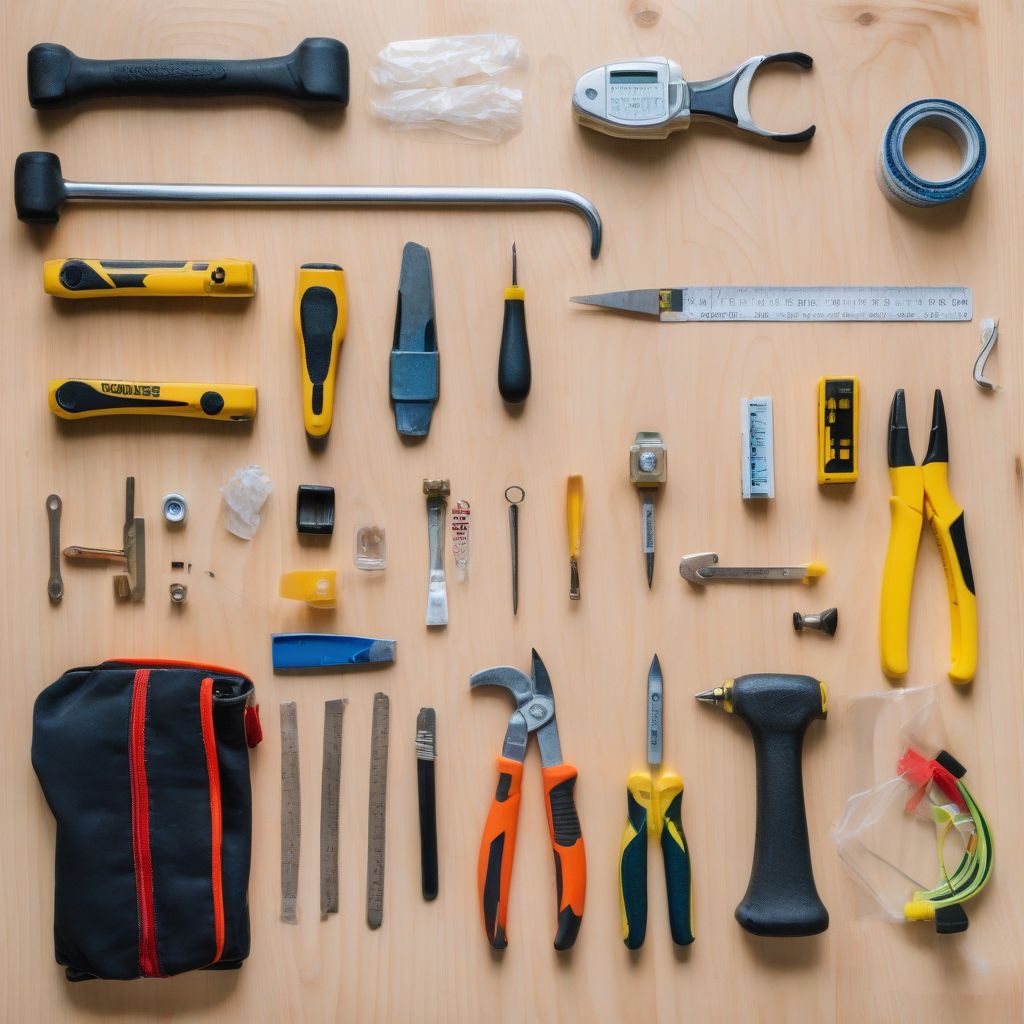Have you ever stood in the hardware aisle, overwhelmed by the sheer number of tools staring back at you? Whether you’re a complete novice just starting out or a seasoned DIYer looking to upgrade your kit, choosing the right toolset can be daunting. But fear not! This guide will walk you through everything you need to know to find the perfect set for your needs and skill level, empowering you to tackle any project with confidence.
Essential Tool Sets for Beginners
Starting your DIY journey can feel like stepping into a new world. There are so many tools out there, where do you even begin? A well-rounded beginner’s tool set should cover the basics for common household tasks and smaller projects. Here’s what to look for:
Must-Have Tools for New DIYers
- Hammer: A claw hammer is essential for driving nails and removing them. Look for one with a comfortable grip and a balanced weight.
- Screwdrivers: A set of both Phillips and flathead screwdrivers in various sizes is crucial. Magnetic tips can be a lifesaver for holding screws in place.
- Tape Measure: Accurate measurements are the foundation of any successful project. A 25-foot tape measure is a good starting point.
- Level: Ensuring your shelves are straight and your pictures hang evenly requires a level. A torpedo level is compact and versatile.
- Pliers: Combination pliers are great for gripping, twisting, and cutting wires.
- Utility Knife: A sharp utility knife is invaluable for cutting various materials, from cardboard to drywall.
- Safety Glasses and Gloves: Protecting your eyes and hands is paramount. Always wear appropriate safety gear.
 Essential Tools for Beginners
Essential Tools for Beginners
Recommended Beginner Tool Sets
Many brands offer pre-assembled tool sets specifically designed for beginners. These sets are a cost-effective way to get started and often come in a convenient carrying case. Look for sets with positive reviews and durable construction.
Leveling Up: Tool Sets for Advanced DIYers
As your DIY skills progress and you tackle more complex projects, your toolset needs will evolve. Investing in higher-quality, specialized tools will enhance your efficiency and precision.
Power Tools for the Serious DIYer
- Power Drill: A cordless drill is a game-changer for drilling holes and driving screws quickly and efficiently. Consider a drill with multiple speed settings and a good battery life.
- Circular Saw: A circular saw is essential for cutting lumber and other materials. Look for one with a blade guard and adjustable depth settings.
- Reciprocating Saw: This versatile saw is great for demolition and cutting through various materials, including wood, metal, and plastic.
- Jigsaw: A jigsaw allows for intricate curved cuts and is ideal for woodworking projects.
- Random Orbital Sander: Achieving a smooth finish on wood requires a sander. A random orbital sander is a good all-around choice.
Specialized Tools for Specific Projects
Depending on your interests, you may want to invest in specialized tools for specific types of projects. For example, if you enjoy woodworking, a router, table saw, and chisels might be worthwhile additions. If plumbing or electrical work is your forte, specialized tools like pipe wrenches and voltage testers are essential.
Building Your Advanced Tool Set
Building an advanced toolset is a gradual process. Start by identifying the types of projects you’ll be undertaking and then research the specific tools required. It’s better to invest in high-quality tools over time than to buy cheap tools that will break easily.
 Advanced DIY Tool Set
Advanced DIY Tool Set
Choosing the Right Tool Set for You
Whether you’re a beginner or an advanced DIYer, choosing the right toolset depends on your specific needs and budget.
Factors to Consider
- Project Type: What types of projects will you be tackling?
- Skill Level: Are you a beginner or an experienced DIYer?
- Budget: How much are you willing to spend?
- Quality: Invest in durable, well-made tools that will last.
- Storage: Consider how you will store your tools.
Tips for Buying Tools
- Read Reviews: Check online reviews to see what other DIYers have to say about different tool sets.
- Compare Prices: Shop around to get the best deal.
- Consider Brand Reputation: Choose reputable brands known for quality and durability.
- Think Long-Term: Invest in tools that will serve you well for years to come.
Conclusion
Building a well-equipped toolset is an investment in your DIY capabilities. Whether you’re a beginner just starting out or an experienced DIYer looking to expand your arsenal, selecting the right tools will empower you to tackle projects with confidence and achieve professional-looking results. Remember to prioritize safety, choose quality over quantity, and enjoy the process of creating and building. Now, tell us about your favorite tools in the comments below! We’d love to hear your recommendations. And don’t forget to share this guide with your fellow DIY enthusiasts!



